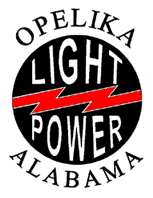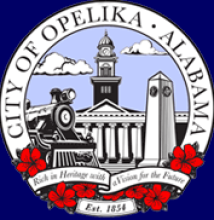Opelika Considers Smart Grid Network, Charter and Others Misinform Public
Opelika, Alabama, is home of some 27,000 people and a public power utility called Opelika Power and Light. On Tuesday, Aug 10, the city will hold a special referendum to decide if the community can build a network that will cover telecommunications and smart-grid services.
Alabama is one of the states that preempt local authority to build broadband infrastructure, requiring a referendum and imposing limitations on the business plan for community-owned networks that it does not do for privately owned networks.
The local newspaper has a Q&A to answer questions about the project.
Expected cost is in the neighborhood of $33 million and will be funded with revenue bonds if citizens approve the project. Opelika Power and Light already has a fiber ring that will be used in the project if they move forward (the project could start offering services as early as Fall 2012).
From a distance, it appears that details are not yet worked out (and why would they be -- until they have the authority conferred by a successful referendum, they would not complete any agreements), but the private company Knology will likely provide some of the services on the network built by Opelika.
 The local editorial board endorsed the plan.
The local editorial board endorsed the plan.
 The local editorial board endorsed the plan.
The local editorial board endorsed the plan.
“Shall the City of Opelika, Alabama, be authorized to acquire, establish, purchase, construct, maintain, lease and operate a cable television system for the purpose of furnishing cable service to subscribers?” That’s what the ballot will read in Opelika on Aug. 10. And the answer: absolutely yes.Unless, of course, you are a massive company like Charter that already offers services. If you are Charter, you might make absurd claims that cable is somehow more reliable than fiber. The Charter Government Relations Director apparently suffers from what we might call the make-ity-up disease.



